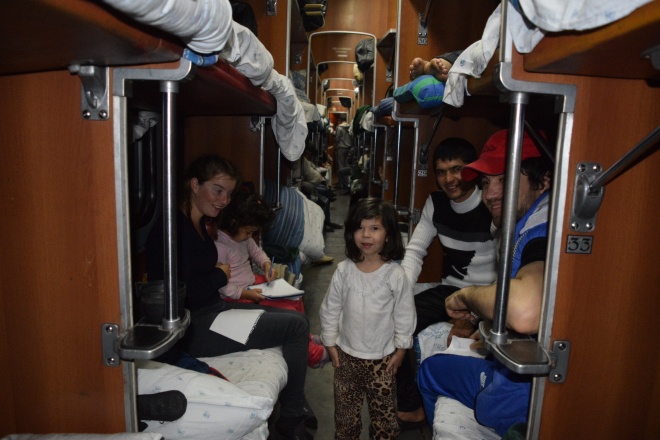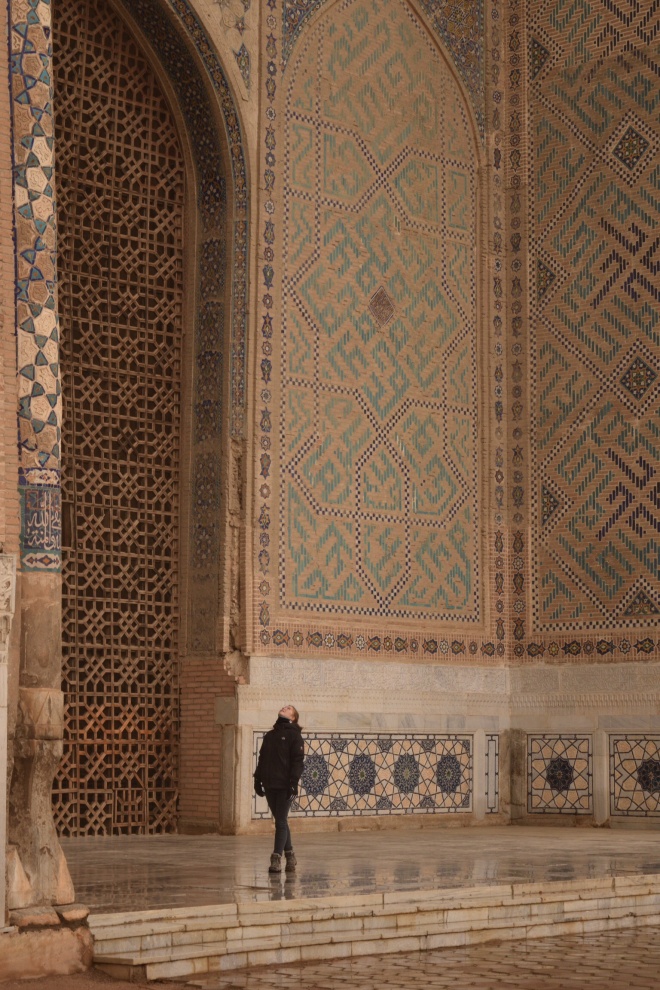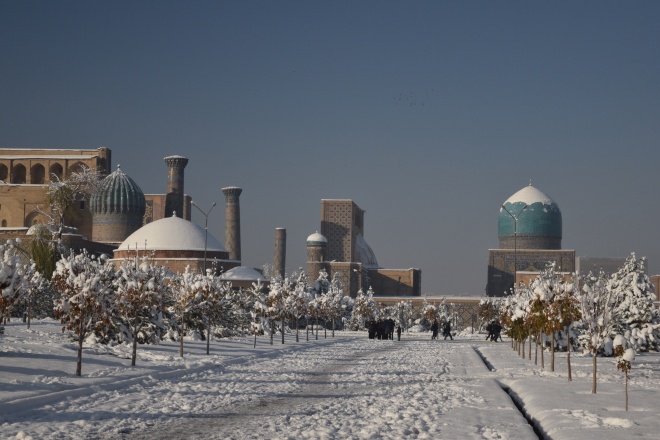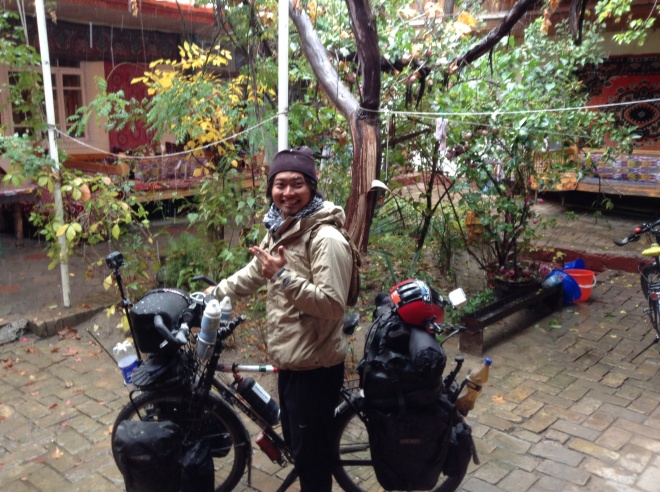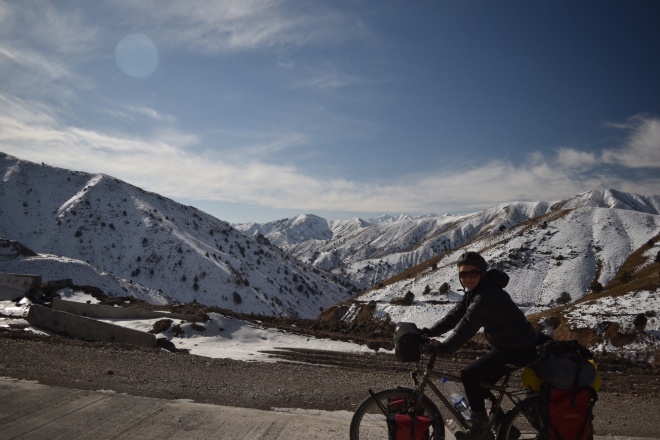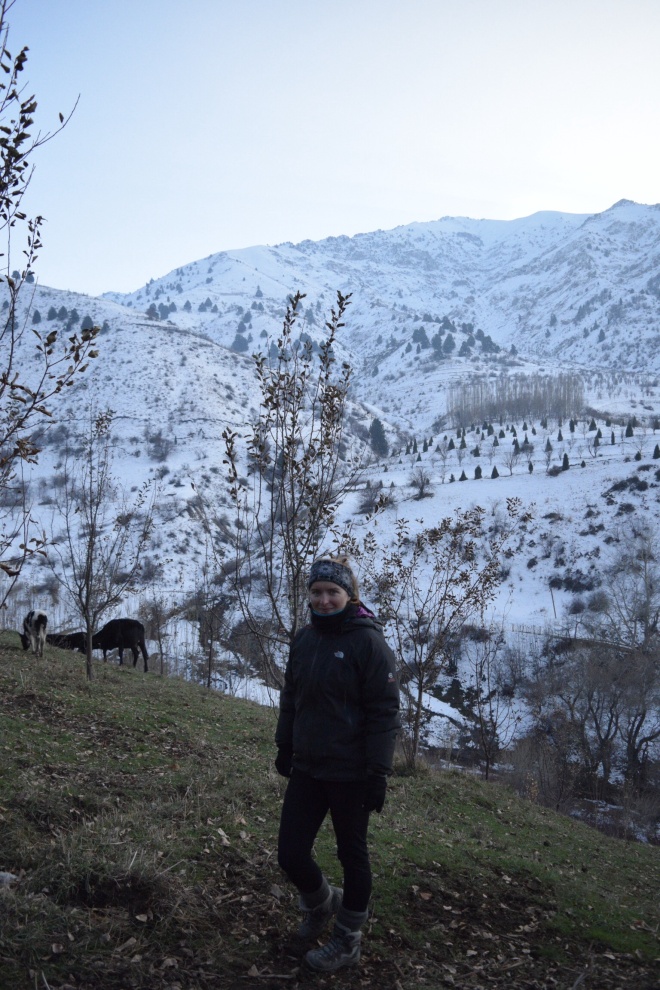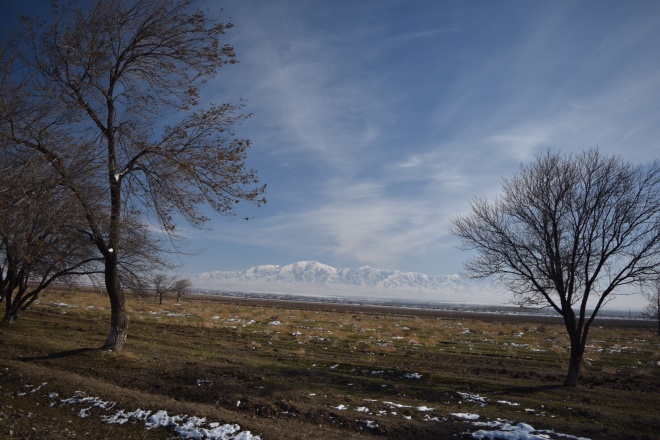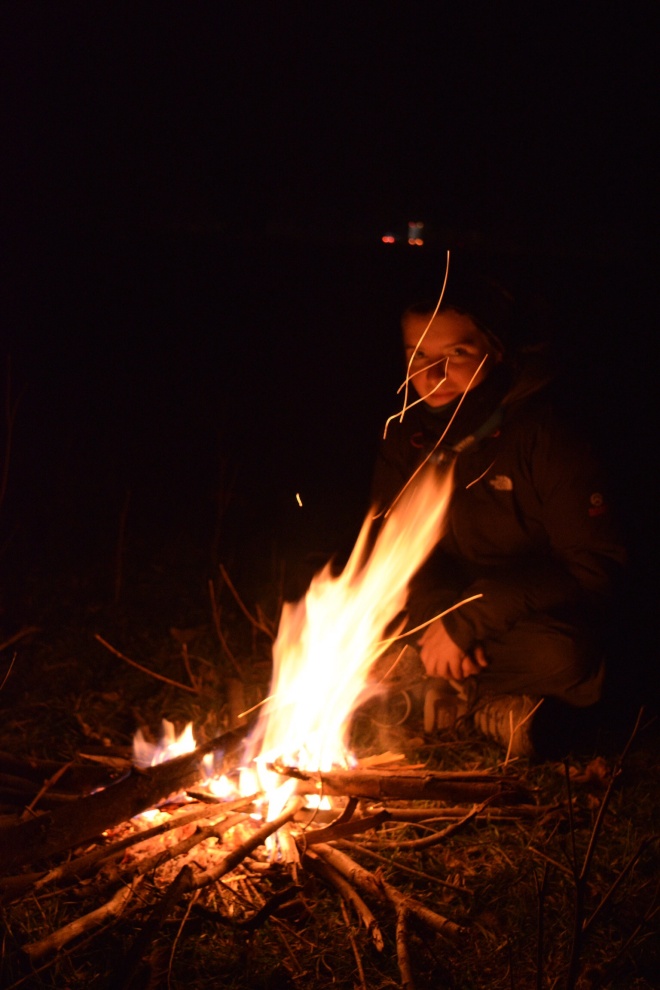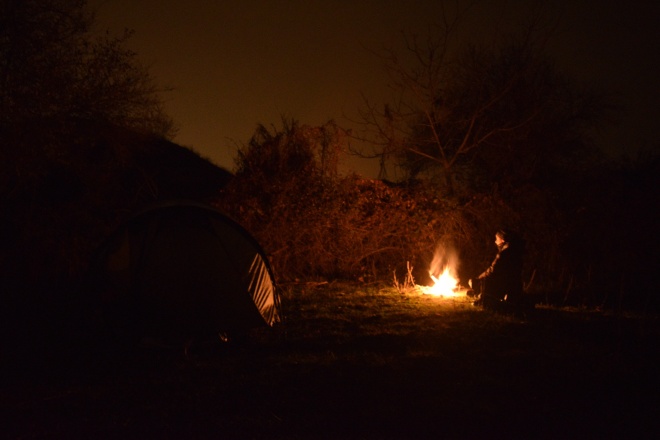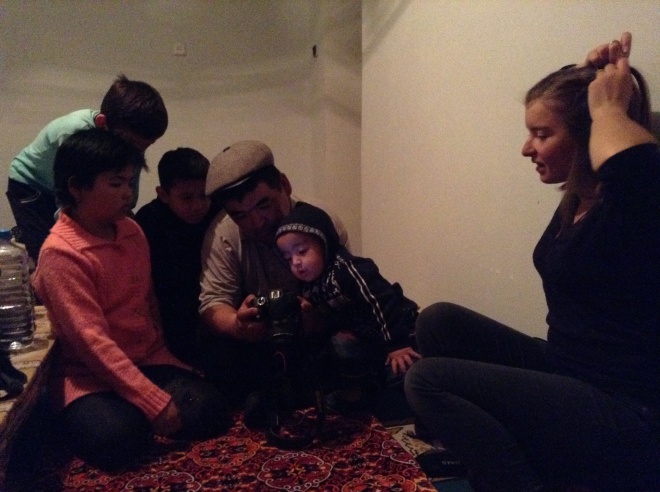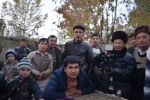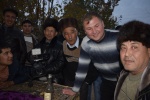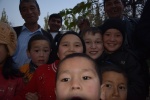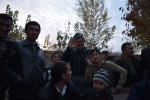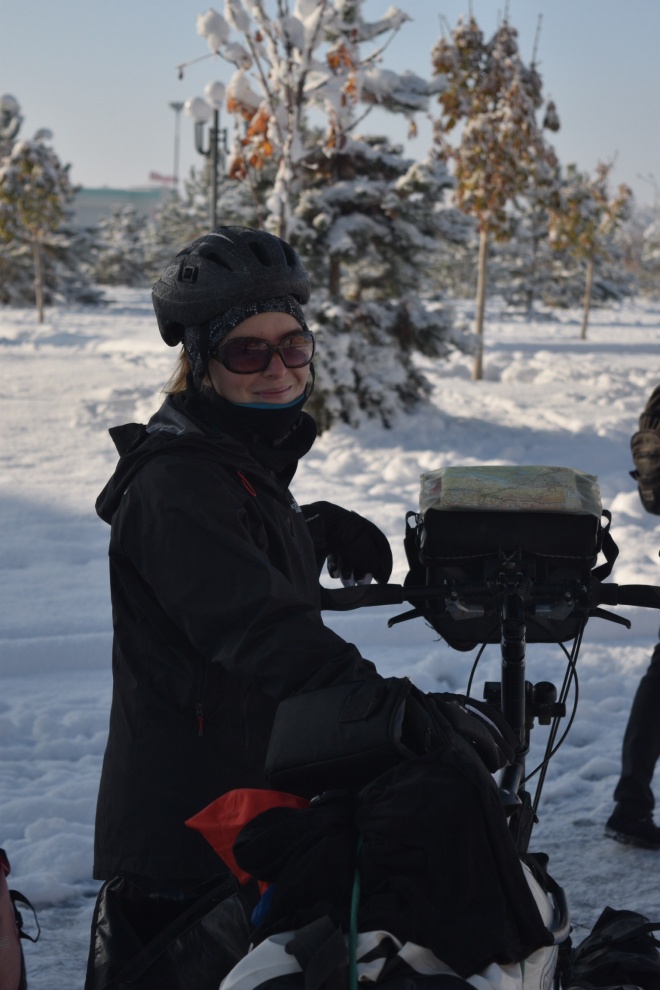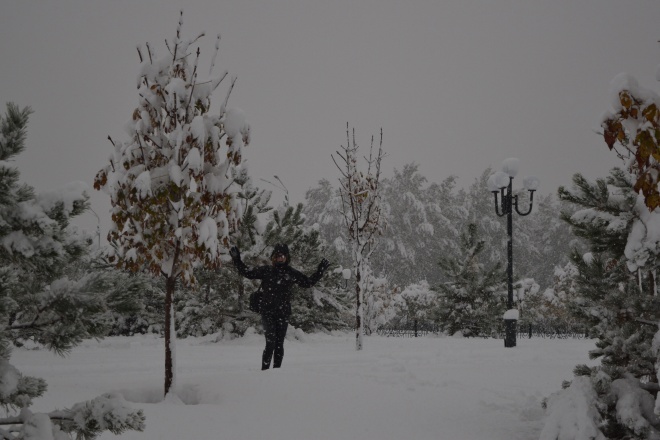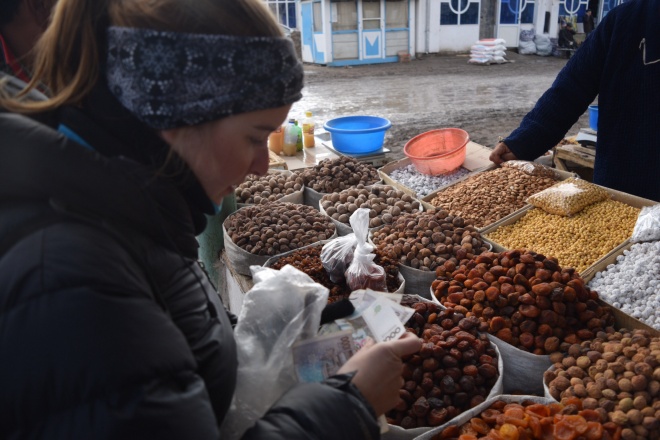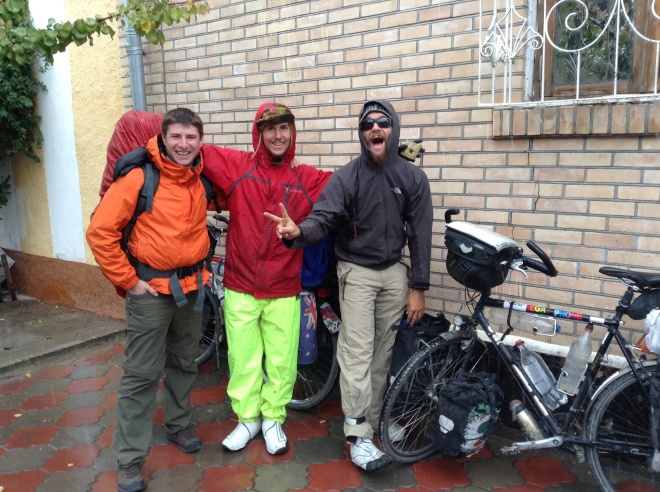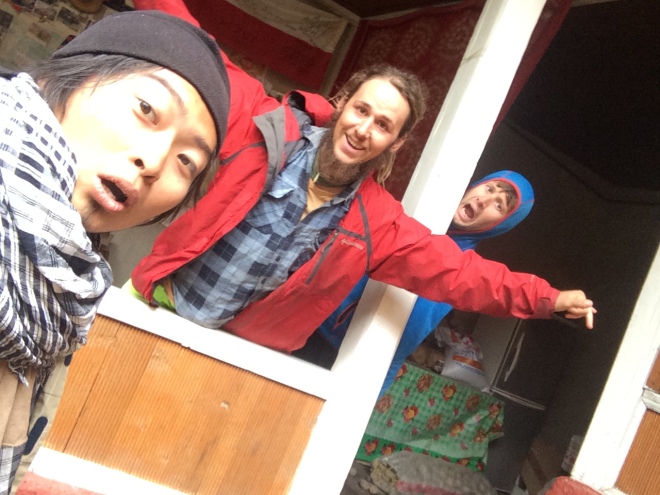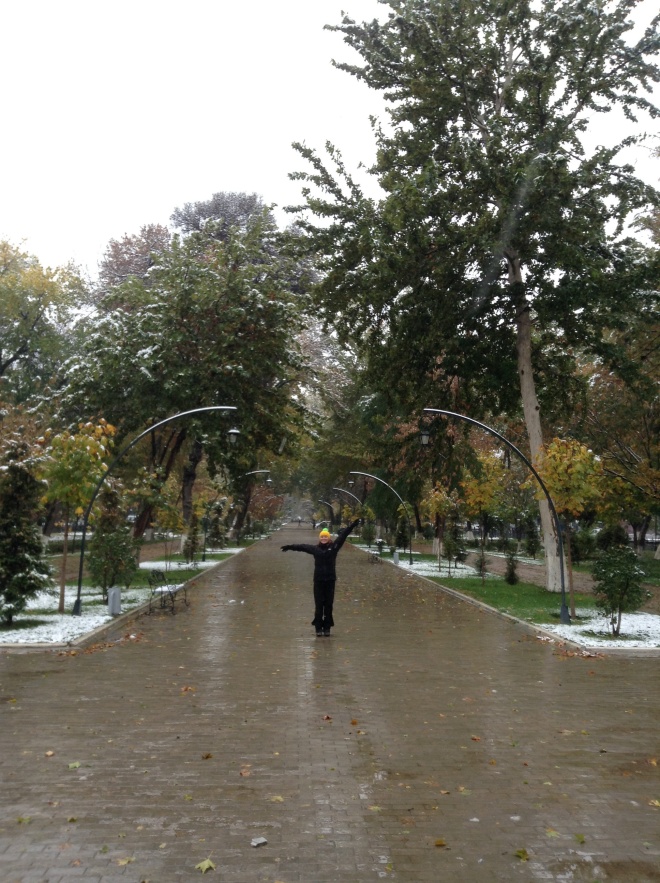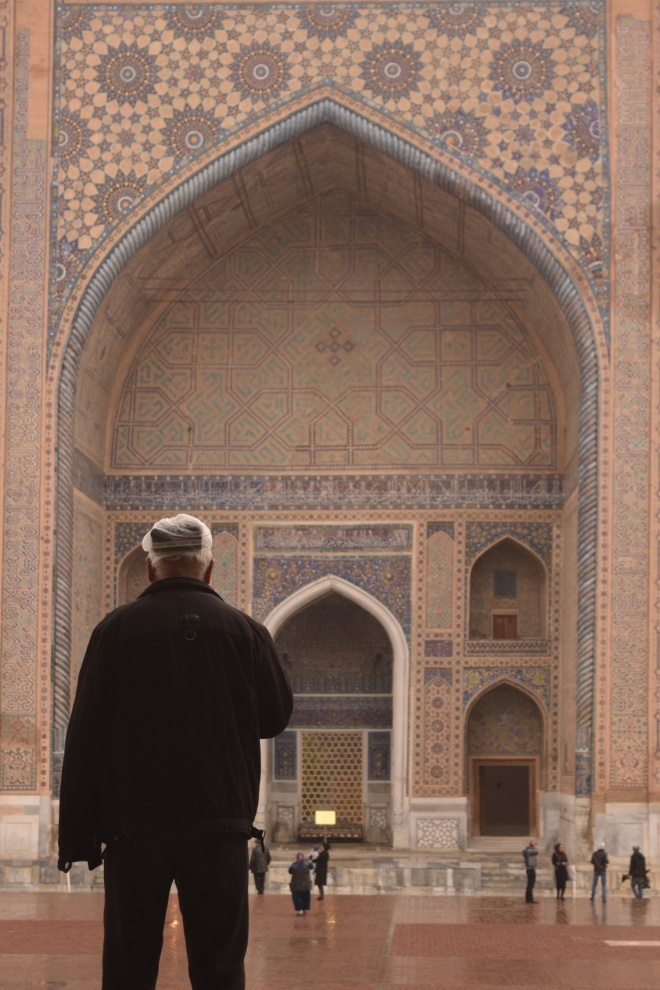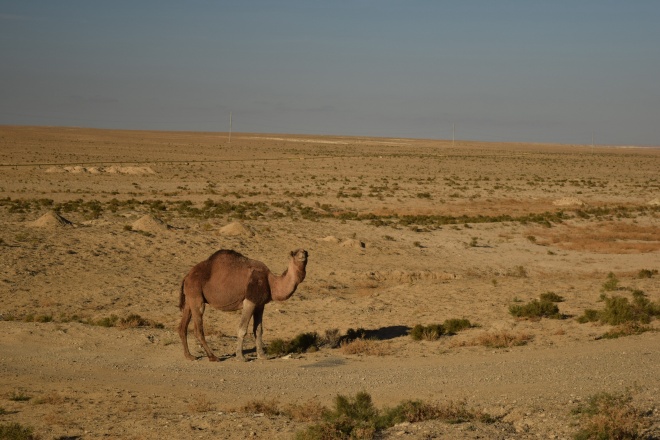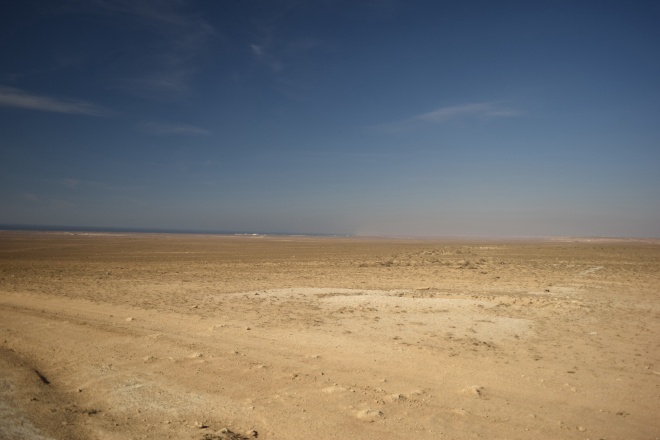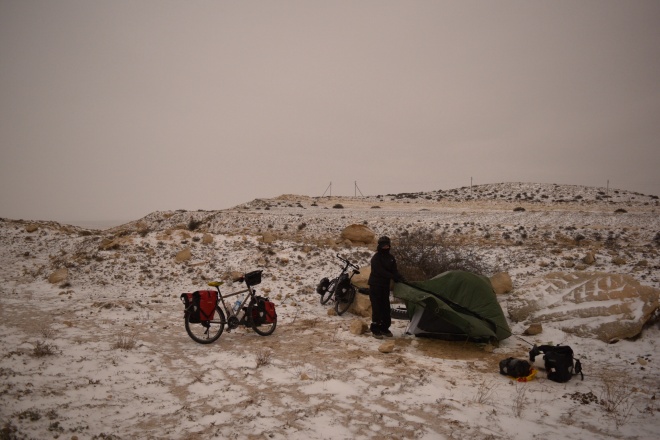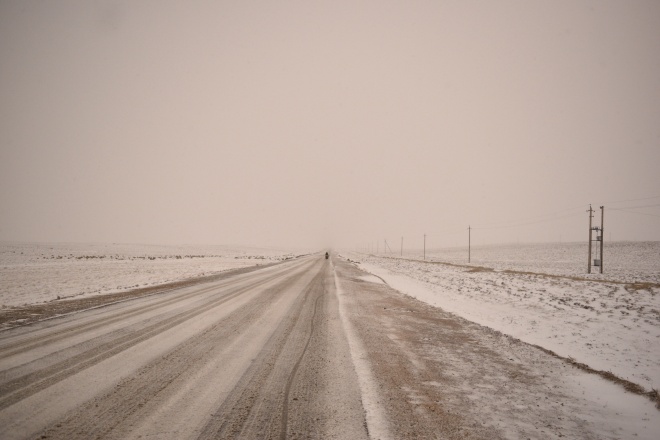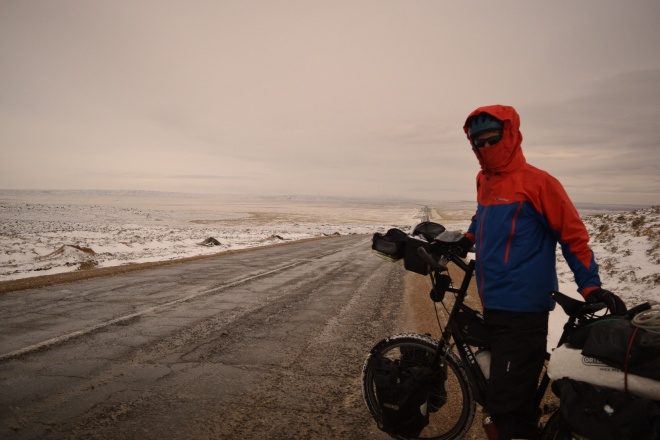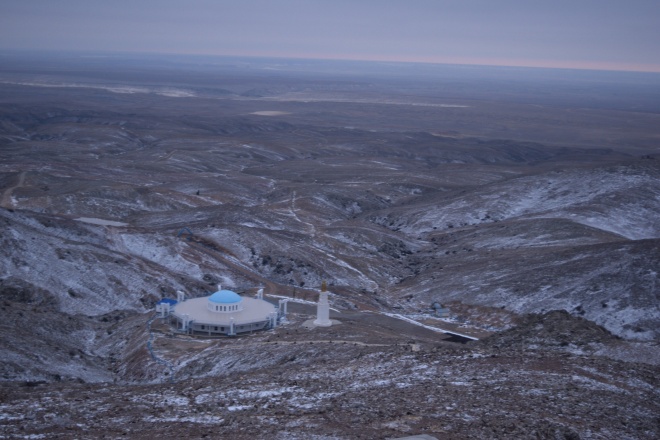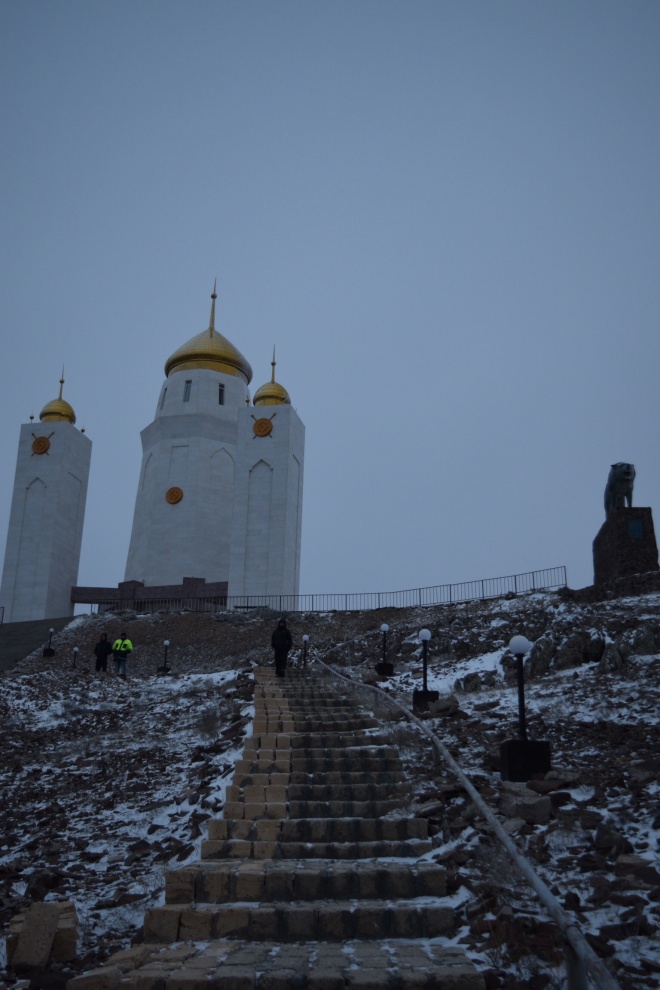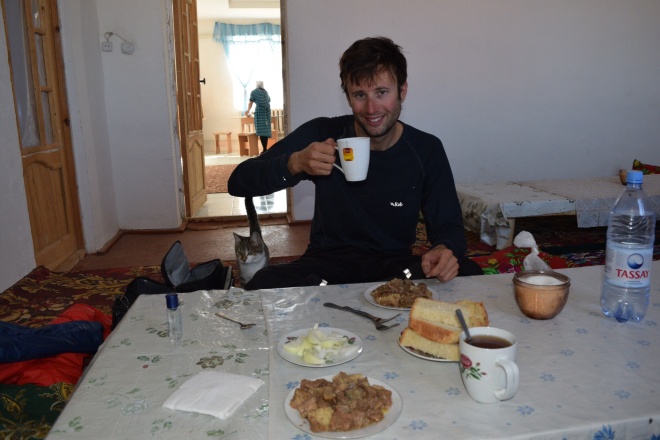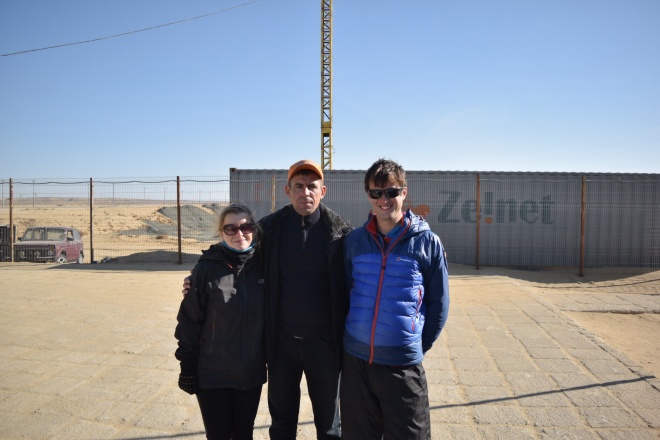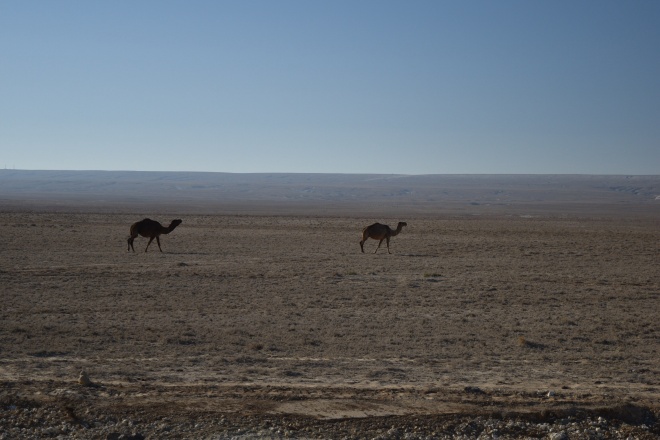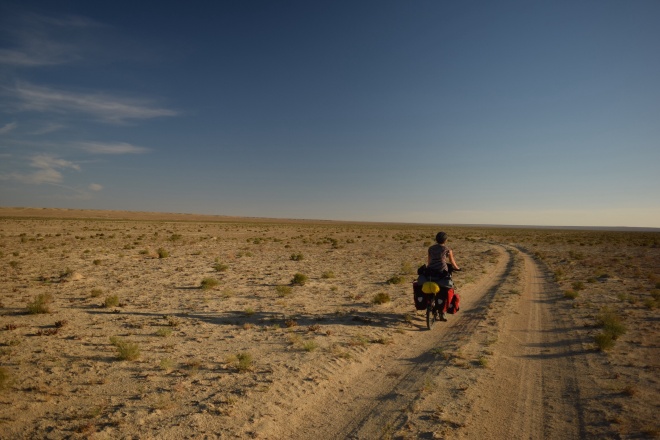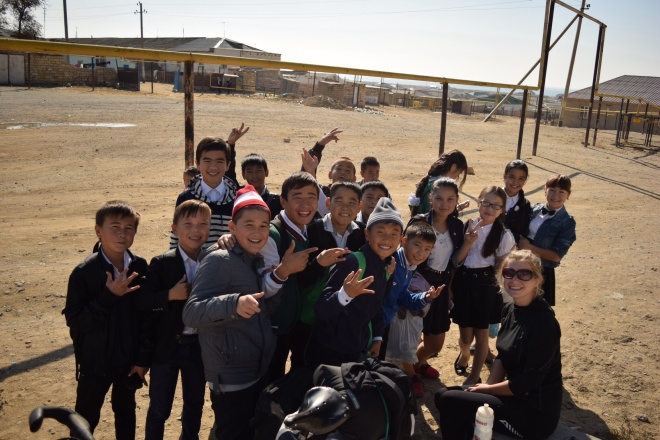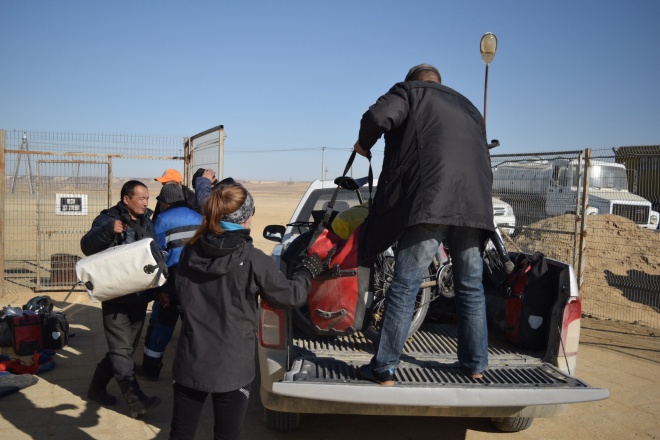(This post has been back-dated due to the lack of internet for uploading over the past month).
Uzbekistan is an immense hassle for tourists (ie. us) wishing to get money out. Not simply because the country is 80% desert, but also because ATMs are scarse. Scarily scarse. Even in the cities.
So just how did we manage to traverse 1800km and end up on our final night making speeches through a PA in front of an audience of a hundred, the same amount of mobile phones cameras and a professional TV camcorder ?
We rely somewhat on a grapevine of information passed onto us by other tourers for such matters of nuance as the money sitation. With everyone else travelling through Iran (at time of writing, British people have been unable to move freely since April) we missed out hearing the crucial advice of entering the country with as many US dollars as possible to serve as your bank.
The €50 note and $100 note I had been carrying for such emergency measures dug us out of the north west part of the country (which was pure desert). As we crossed the border and cycled into the pitch black desert at night (where we subsequently managed to pitch up in the dark!), we were able to find traders who happily swapped the notes for local Som. Despite the seemingly wealthy wads of cash this produced, we quickly realised that Uzbekistan isn’t the cheapest of countries; it just about bought us our train fares for the next day, food and the only “hotel” (floor in a cafe and absurdly expensive) in town. Camping wasn’t an option here: the previous morning, we’d got stranded in the worst mud that saw us break a speed record of 200metres in three hours. 0.05km/hr.
On the eve of Carmen’s birthday we were counting our last few wads of cash and rationing every minute purchase. Tea and bread had to be justified.
Amazingly, upon opening her cards the following morning (I had been carrying them with me since Bulgaria) a €20 note greeted Carmen, all the way from Nan San and GDT on the Wirral. This would help us on the train journey but we still needed a lot more.
We knew we could probably rely on the goodwill of our fellow train passengers to feed and entertain us. A fantastic Soviet train with beds facing each other and people feasting on all sorts of produce served up by the dozens of traders hustling up and down the carriages. Fresh bread, cakes, biscuits, samosas, chocolate, drinks, the lot. They even have chefs hop on with giant vats of cooked food to dish out in plates which they collect after use.
And it wasn’t just food on the go: Barbie dolls, huge toy cars and trucks and electric appliances. All carried awkwardly through the narrow aisle in giant tall bulky plastic bags. This train had started it’s journey in St Petersbourg and I saw several Russian men alighting the train carrying their toy trucks and dolls. Subjects of Putin sporting Barbie dolls. It really didn’t conform to the stereotype. Was this the homosexual propaganda that Putin is so afraid of?
I informed the passengers in our vicinity of Carmen’s quarter-century milestone. It didn’t take long for them to share up their vodka, meat, bread, tomatoes and tea. Sadly no Barbie doll. We switched the €20 birthday note for local currency and bought ourselves some delicious plov and salad from one of the passing chefs. We kept the change and hoped we’d find ATMs once we reached Samarkand.
We arrived the next morning at 5am, still pitch black, 20 hours after departure onto a chaotic platform in heavy falling snow. We carried our possessions over the railtracks and slowly rode towards the city centre 10k away, with iPad offline maps at hand to find the cheapest hotel. We rode into the sunrise with snow falling into our eyes. It was quite a beautiful scene.
More beautiful was arriving into the warm cosy hostel-like hotel and sharing an early morning breakfast with three other cycle tourers, a duo from Australia and a Thaiwanese chap. Long gone were the warm sunny days of joyfully bumping into other cycle tourers. So this came as a surprise to us as we had assumed that we were the only ones to be cycling in these colder climates. It felt reassuring to know that we weren’t alone and that others could soon be enduring such hardships as our Kazakh winter experience.
We spent three hours going from bank to bank to ask if our Visa Caxton card can be used in their ATMs. Each “nyet” thrown at us added to the immense frustration of being gridlocked from doing anything. Power outages common, we’d walk into banks operating a reduced service. After protesting some, we used crying and venting psychological manipulation to turn an unhelpful cold receptionist into an obliging and caring soul who sat us down with coffee while she phoned around to find us an ATM. We were put in a taxi, dumped somewhere and we asked around “znayete gde Kapitalbank bankomat?” Another hour later, our four day search was finally over. We waited for the day’s 3rd power cut to cease and spent 20 minutes withdrawing $400 from a reluctant cash machine. Even the computer wanted to say “niet”.
Panic over. We found a lovely blues bar, sat by candleight (6 powercuts) and stayed up till 3am (9 hours after our usual bedtime) getting pissed.
We didn’t feel that we had missed much by catching the train, it all looked bleak and boring out the window. The parts that we did cycle (from Samarkand onwards) were scenic and prosperous; roads lined with trees and with plenty of fresh fruit sellers. On a mountain pass of 2100m we asked to pitch up our tent but were given a hut to sleep in with a beautiful view.
Our new Australian friends from back in the hostel had brought with them some new concepts. Among these:
Dumpster diving, cooking on the coals of fires every night, washing up gloves used as rainproof glove layers, cycling 100k a day and using a candle to dehumidify the tent for 30mins before use.
These were strange ideas to us that we assumed to be part of ordinary daily austral culture and language. And although it did baffle us a bit, we set about trying to implement some of it. (We instantly ruled out the 100k regime though). XL washing up gloves fitted perfectly over my new cheap cotton gloves and together acted as an effective pair of waterproof gloves. Genius. The candle trick may also be working, it’s hard to tell, but we have woken up to a completely dry tent on two occasions.
The rapidly reducing daylight hours and temperatures now brought about a new evening routine of gathering firewood and lighting fires every night. Not only did this toast us up tremendously but it gave us something to do other than simply fall asleep at six o’clock every day. But one step at a time; ‘cooking on the coals’ requires a little more expertise in fire management. Basic steps first eh?
The enthusiasm we received from the locals was tremendous: constant attention and every other car honking us. It was as if we were famous. Any form of privacy whatsoever, including a simple conversation, stopped for us the minute we crawled out of our tent. Stopping for any reason such as lunch, buying a Snickers, map-check or just a quick pause would quickly force us back onto the bikes as a crowd would gather round and stare at us.
We would repeat about a hundred times a day the same well-rehearsed Russian dialogue with the locals:
-Where are you from?
England (curiously, the Russian word for this is that of our former kingdom ‘Anglia’)
-Where are you going?
Kyrgyzstan then China then south east Asia.
-Did you fly here?
No, England to here with bicycle. In Malaysia finish and aeroplane to England.
-How many days?
6 months
-How many km?
We don’t know. 6000 or 7000.
-Are you husband and wife?
Yes. (Spares Carmen the immense constant bore of men assuming they’re in for a chance)
-Where do you sleep?
Tent
-Do you have children?
Niet
-Why don’t you have children?
I don’t know.
-You are 33 and you don’t have children?
Yes.
-Are you not cold?
Niet
Just at the point of closing a conversation and taking our first pedal, we would be stopped and this entire script could be repeated. After three weeks of being deprived from having our own conversations, it did become exhausting. Sometimes the only way to get things done or even to concentrate was to shut everyone off around us for a minute, as if they were disposable avatars in The Matrix.
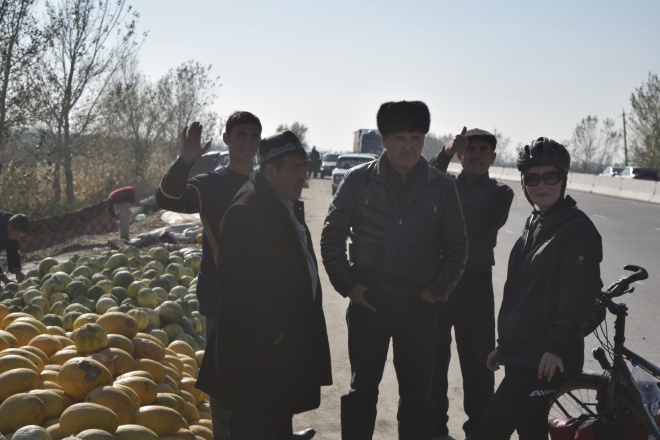
Routine questionning. This one from The Melon Men, a mafia known to pull us over and offer us their goods free of charge
We left Uzbekistan in style. As we were looking for a spot to camp we got waved in to a wedding party in someone’s garden. One minute we were exhausted from a 90k day, the next I was feasting on a flow of food and vodka surrounded by about fifty faces watching me, each person tapping my shoulder and each face shouting their questions through their golden teeth at me as I calmly ate. It was hilarious. It was chaos. Nobody would let me answer a single question before the next question would be fired. Two or three of these faces were an inch away from mine.
-Zhosef, vodka vkusno?
Da, ya lub..
-Zhosef? How years when are you?
I am thirty th
-(Tap on the shoulder) chai, chai pozhalsta, eta vkusno!
-Zhosef, my name is Abdullah and my name is (pointing to another person) Maruf
Pleased to meet you, ochen priatno, gde vi…
-Zhosef? Chai vkusno?
Da, da ochen vkusno, spaseeba
-Dance ? Eat after dance, ok?
Yes ok
-Zhosef, you dance now
Yes. Chai ee borsch patom dance, harasho?
-Zhosef,… (ad infinitum)
I was forced fed tea and vodka from all directions, everyone competing to put something in my mouth, with my mouth already full of either cakes, soup, vodka, tea, bread or meat. I was crying with laughter whilst eating. There was a professional video tape camera pointing at me. It was hospitatlitic chaos on another level and total sensory overload. Teaching groups of sugared-up 4 year old Korean kids required less management. Here are a few photos showing my point of view.
Nutters.
I had no idea where Carmen had been ushered to. I escaped and found her in a peaceful room by candlelight (blackout) sitting down and eating with the girls. All questioning from her audience was channeled in an orderly manner via an old lady, who conducted the interview in German and in Russian.
And then we were dancing and people were giving us money.
And then we were made to a produce a speech in English, camera phones pointing at us. I can’t remember exactly but I think I said something like:
Hello and welcome to this wedding party. Thank you for making today so special. Had a great time.
Sod the happy couple. We were the centrepiece, surrounded by dozens of faces at all times. Then, just like that, less than an hour after arriving, a couple of dozen people presented us with our belongings, ushered us to our bikes which were being steered to the exit and we were further ushered to bugger off into the night, 4000 som richer. But we think everyone may have been leaving because a minute later a van laden with golden teeth overtook us. With an arm waving from the passenger seat we heard a final “Zhosef!” disappear into the silent night.
High and merry, we cycled on for another hour or so and approached a garage to ask if we could pitch up. Naturally our bikes were put on the back of the customer’s pickup truck which was being serviced from the pit below. We waited for them to finish fixing it, and we were then taken into his peaceful family home. Two nights in one! For hours we were fed, vodka’d and tea’d by candlelight (blackouts) and put into the extremely warm and cosy floor beds that are found in every Central Asian home.
Today had been travel at its finest.
I was so vodka’d up that night that bad things happened to me. So bad that I am too ashamed to write about them. It wasn’t pretty.
The next morning we rode the last peaceful ten kilometers and proceeded through to the world’s quietest border crossing that we eventually found off the beaten track. Sunglasses on, a backstage door out of this insanely friendly country was exactly what my delicate head and stomach needed. No interviews or nothing.
Behind the backdoor was our final home-straight to Bishkek. But did we decide to take the easy route or the difficult and even potentially extreme route?
I guess you read that as a rhetorical question with only one clear answer?

